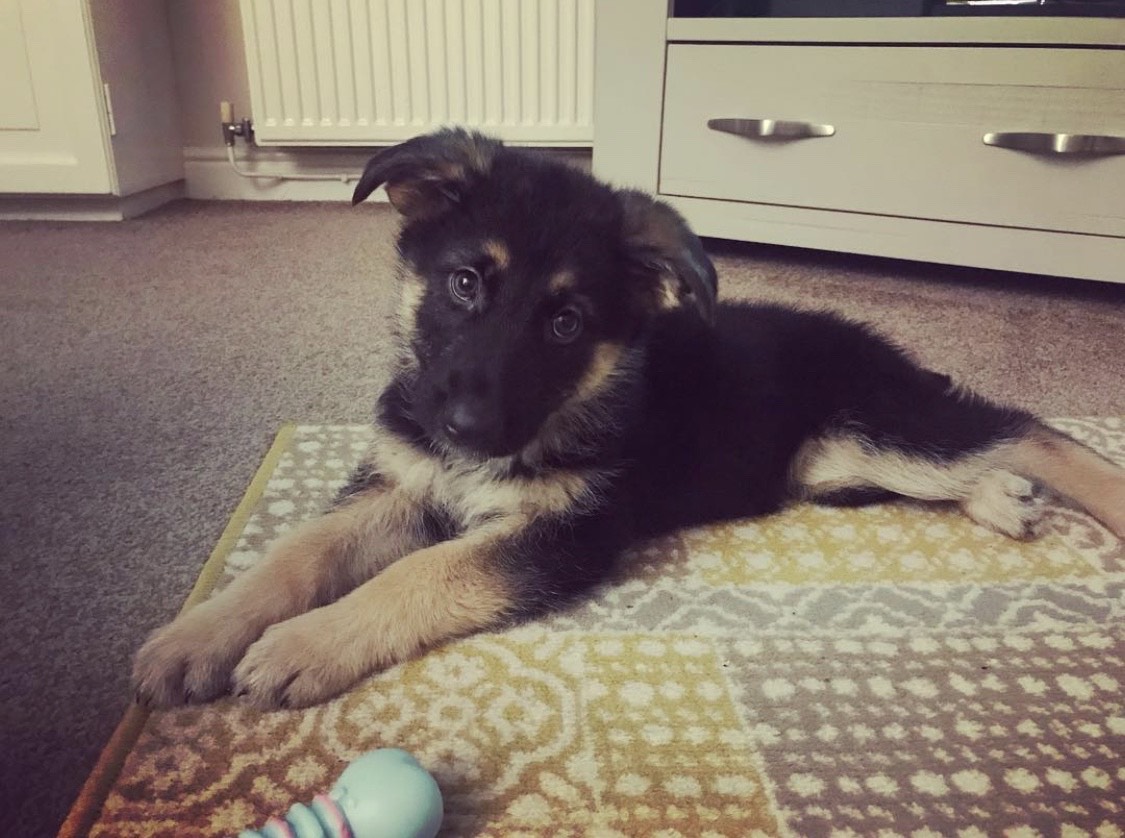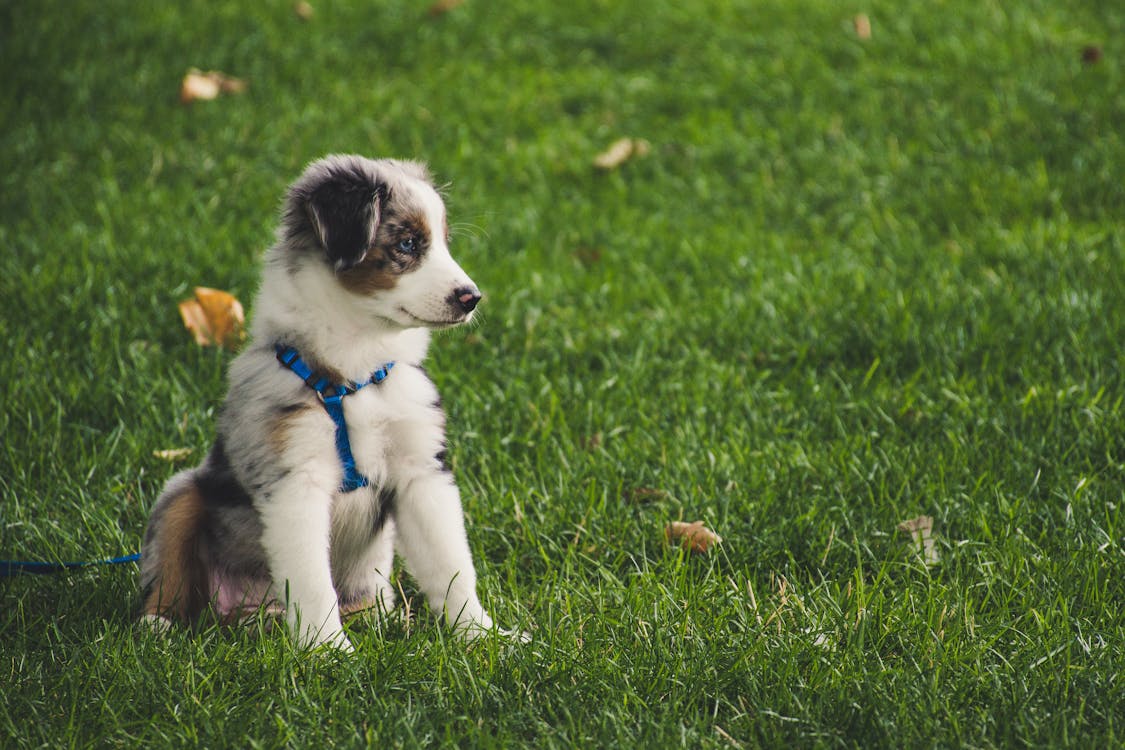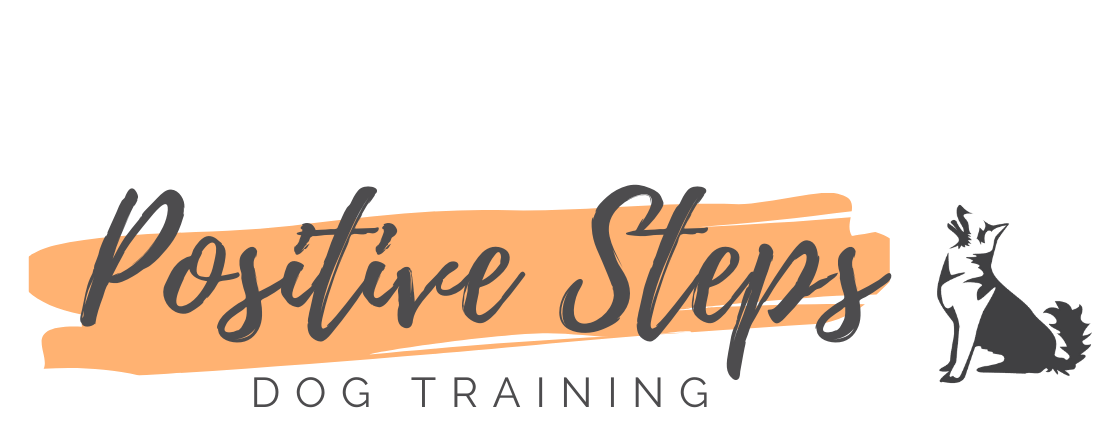
Bringing home a new puppy is a fun and exciting time, as long as you’re fully prepared beforehand! Ensuring you have the necessary equipment and knowledge will help prevent potential problems further down the line. Below is a guide to your pup’s first year, covering everything you should be thinking about to set up your puppy for success.
Before Bringing The Puppy Home (before 8 weeks)
Once you have decided on the right breed for you (after thorough research!) and have been to choose your pup from a responsible breeder or rescue centre, you need to ensure you are prepared with all of the necessary equipment and medical appointments for your pup, such as:
- Organising puppy vaccinations
- Pet insurance
- Puppy proofing your home
- Teaching children how to appropriately handle the pup and about personal space
- Crate/bedding – think about taking a blanket from the breeder
- Food and water bowls
- Appropriate puppy food
- Lead/harness/collar
- Identification tag with your name and address (this is the law in public places!)
- Car harness/travelling crate
- Puppy toys
- Grooming equipment
- Poo bags
- Play pens/child-gates
8-12 weeks
This period is a vital time for your pup, as they are most receptive to new experiences without fear – what they learn during this time will shape their future behaviour. Your puppy won’t be fully vaccinated at this stage, but it is still important to properly socialise your pup to new environments, sounds, smells, touch etc. to ensure they grow into a confident, adult dog.
Between 8-12 weeks, you should start to implement routine and basic rules, as well as continuing toilet training that should have started with the breeder – this is the perfect time to being crate training.

You should start handling your puppy appropriately to desensitise them to touch and introduce basic cue words as soon as possible to ensure safety and good manners. They should be fed on the same food as when they were with the breeder, with a slow, phased approach to changes.
At this age, you should set your pup up to confidently handle being alone, to prevent separation anxiety further down the line. How you go about this is vital, please get in touch for further information.
12 weeks – 24 weeks
During this period, your pup should be fully vaccinated and can begin full outdoor socialisation to boost their confidence. Ensure your pup has many pleasant outdoor experiences in a variety of environments to ensure they don’t develop a fear of the unknown.
At this age, pups can go through an intense chewing phase as they begin to teethe, so it is important to provide appropriate chew toys as well as begin to introduce basic obedience training to avoid mouthing/nibbling!
During this period, puppies should begin basic training, which should be kept short and exciting. We can begin to think about what our pups enjoy most and use this to motivate them during training. We can begin showing our pups how to walk on a lead, control outdoor greetings and begin to introduce a solid recall command. Pups at this age should also be allowed plenty of rest, since learning and exploring is very tiring!

6 months onwards
When our pups reach this age, advanced training can commence. At this age, our dog’s attention span will be much greater, and having set them up with a good, positive training foundation from a young age, they will be eager to learn!
At this age, you should also be thinking about dietary changes for your pup as they transition into adulthood. Consider having neutered, but be sure to educate yourself on this, as it will vary depending on breed.
If you are interested in puppy training, please visit the website for further information or get in touch!
